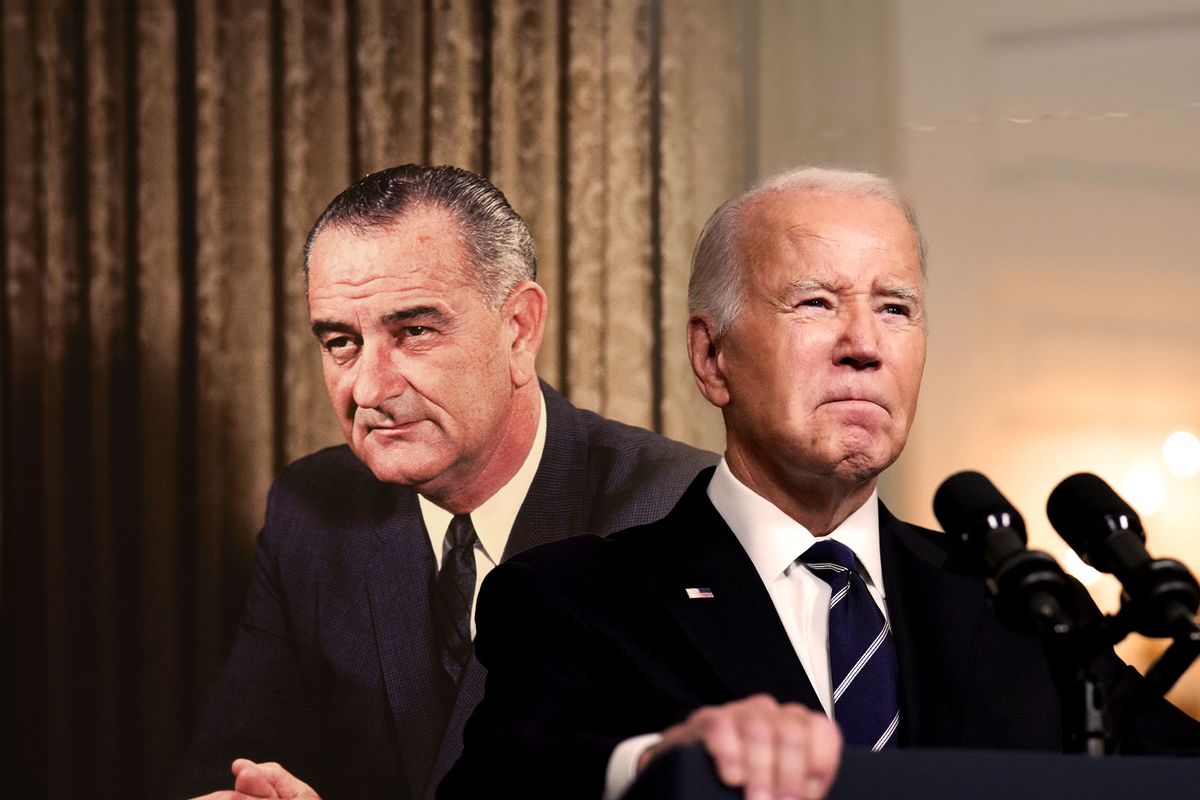“Big picture: getting rid of leaders to get rid of wars doesn’t have a great track record. Consider the example of Barack Obama following George W. Bush. This shouldn’t surprise anyone familiar with any sort of leftist systemic analysis. Systems are the problem; politicians are symptoms of that system, at best. If anything, changing leaders can relieve the pressure to end the war. That’s what happened with Nixon, and again with Obama.”
We drove LBJ from office ? and got 50 years of dreadful Republican policy. Those who don't learn from history ...
Views: 322

When it comes to history and wars, war is a lot more common than non-war, and wars usually end when either one side wins or both are exhausted. To parallel one historian, peace is like a bridge, an unusual situation which needs to be explained, as opposed to gravity causing a bridge to fall down, which is to be expected.
For current politics, though, the Republicans seem to be moving toward their early-twentieth-century position of isolationism except for belligerence where the US’s interests are perceived to be involved.
The best context I’ve seen on the US and war is https://web.archive.org/web/20010302232603/http://www.nationalinterest.org/issues/58/Mead.html
As for systemic factors in general, they’re usually quite important. A parallel instance is “A lot of people make this very mistake. Perhaps the most vivid example is then-new President Obama asking why ailing automakers “can’t make a Corolla?” There’s nothing wrong with that question as a starting point for understanding the differences between U.S. and Japanese automakers. But that’s not how such questions usually get asked. Instead, […] they usually embed an assumption that an existing firm is one good manager away from turning into a completely different and much more successful entity.” — Megan McArdle